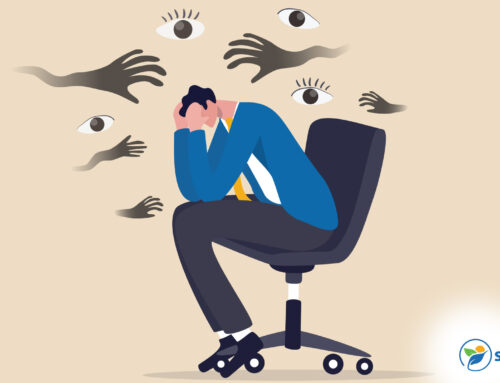Many historical figures likely had histories of mental illness. For example, Vincent van Gogh probably had bipolar disorder, while Thomas Edison may have had attention deficit hyperactivity disorder (ADHD). Napoleon Bonaparte, “the Little General,” may also have had a mental disorder. Historians speculate that his amazing victories could have been fueled by a possible personality disorder. Serious questions such as “What did Napoleon die of?” and “What might have happened if he’d lived?” have been topics of conversation for centuries.
Introduction to Napoleon Bonaparte: Providing Background on the Historical Figure
Napoleon Bonaparte is a well-known figure, but depending on the listener, he is a beloved hero or an outrageous villain. Napoleon has become the main character in countless songs and stories. From his relatively humble birth on the island of Corsica, Napoleon rose to become one of the most popular military leaders in French history, eventually taking over the country as the Emperor of France. He went from a self-crowned ruler to a conqueror who marched soldiers throughout Europe and even into Russia in a time when military travel was mostly accomplished on two feet.
His incredible accomplishments and grandiose history have left psychologists fascinated by the possibility that Napoleon may have had a personality disorder that drove him to the incredible heights he reached prior to death. And, contrary to popular mythology surrounding his death, he died of — mostly — natural causes. His advanced stomach cancer killed him, along with an overdose of medication we now know to be poisonous. But doctors didn’t deliberately cut his life short, and the difference would have been measured by months, not years, according to modern medical experts.
Speculations and Diagnoses: Discussing Possible Personality Disorders Exhibited by Napoleon
Any time a historical figure enjoys unprecedented success, people are curious about how they did it. When exploring Napoleon’s personal history, many psychologists believe narcissistic personality disorder (NPD) may have driven his success. Psychologists don’t diagnose patients who’ve already died, but many have speculated that he had NPD based on his actions and tactics, which are well-documented.
This disorder is characterized by a persistent pattern of grandiosity, a need for constant external validation/admiration and a lack of empathy for others. When applying the diagnostic criteria for NPD to Napoleon’s life, several aspects of his personality and actions align with this potential diagnosis. Some examples include:
- Self-coronation as emperor. Perhaps one of the most iconic examples of Napoleon’s grandiosity was his self-coronation as Emperor of the French in 1804. Traditionally the Pope placed the crown on the head of the next monarch, but the impatient Napoleon chose to put the crown on his own head.
- Relentless pursuit of military conquests. Napoleon’s numerous military campaigns across Europe reflected his insatiable need for power and admiration. His ambition knew no bounds, and he consistently sought to expand his empire and secure his place in history. This relentless pursuit of conquest and recognition aligns with NPD’s characteristic of seeking admiration and dominance.
- Frequent rewriting of history. Napoleon regularly changed the historical record of his accomplishments. He would edit documents and generally sought to put himself in the most favorable light possible. This revisionism reflects his desire to maintain an idealized image and control the perception of his legacy.
Traits and Behaviors: Examining Personality Characteristics Consistent With NPD
In general, Napoleon was known for his over-the-top personality. Some of his personal characteristics that may have indicated he had NPD include:
- Grandiosity and self-importance. Napoleon was known for his insatiable ambition and a desire for power that extended far beyond the borders of France. When he declared himself Emperor, he took a title larger than king and continued to award himself with various accolades and honorifics to further aggrandize his legacy.
- Lack of empathy. Napoleon’s military campaigns were marked by a single-minded focus on achieving his goals, regardless of the human cost.
Historical Context: What Did Napoleon Die of, and What Role Might NPD Have Played?
Your personality impacts most of your decisions. If you don’t enjoy the limelight, you’re unlikely to join a talent competition or pursue a career on stage. Napoleon’s personality and the tumultuous times surrounding his birth all likely impacted his actions. He was born amid the French Revolution. Napoleon rose to power while the country grappled with major, often violent, social and political change. His NPD personality traits, including grandiosity and a need for admiration, may have been exacerbated by the extraordinary circumstances in which he found himself. But what did Napoleon die of?
He ultimately died of stomach cancer, aggravated by poisoning from the treatment used. Both likely had little or nothing to do with his personality or Napoleon’s mental health. However, his grand accomplishments and political position mean historians and enthusiasts continue to debate possible alternative theories, even hundreds of years after his death.
Modern Interpretations: Reflecting on the Ongoing Debates and Professional Insights Into Napoleon’s Personality
So, did Napoleon have a personality disorder? The question continues to be up for debate among historians and psychologists. Applying modern diagnostic criteria to historical figures is always tricky and requires a deep understanding of the social norms of the time.
While modern psychology provides a lens through which we can evaluate reports of Napoleon’s behavior, no final diagnosis is possible without the ability to directly interview the man himself.
The question of Napoleon’s personality disorder remains a captivating enigma. While there’s persuasive evidence supporting the presence of narcissistic traits in his character, there’s no way to arrive at a certain diagnosis. He was a towering figure with a historical legacy that was both expanded and made possible by the era of his birth. Understanding Napoleon’s personality offers insight not only into his individual psychology but also into the broader dynamics of the early 19th century.
If you know someone with a personality you’d describe as Napoleon-esque, reach out to Sunlight Recovery for help. Our empathetic counselors can help both those with narcissistic personality disorder and those hurt by someone with NPD.






